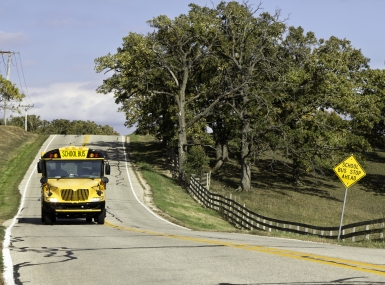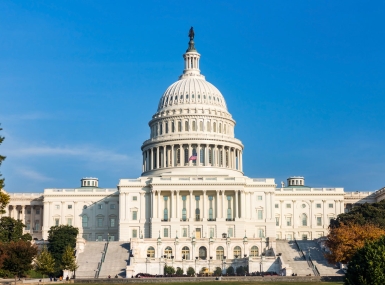Senate Committee advances NACo-supported county payments bills
Author
Upcoming Events
Related News

Key Takeaways
On December 12, the U.S. Senate Committee on Energy and Natural Resources approved two key pieces of legislation for public lands counties: S. 430, which would reauthorize the Secure Rural Schools (SRS) program for an additional two years, and S. 2108, the Small County Payments In Lieu of Taxes (PILT) Parity Act. NACo testified in support of both bills at a hearing before the same committee on November 21.
The SRS program provides counties containing significant U.S. Forest Service lands with funding to make up for revenue shortfalls resulting from declining timber sales off federal forest lands beginning in the early 1990s. SRS was last reauthorized retroactively for FYs 2017 and 2018 with final payments to counties and schools scheduled going to counties and schools earlier this year. Approximately 720 counties and 4,000 school districts in 41 states count on SRS funds to provide a quality education to nine million students. S. 430, sponsored by Senators Mike Crapo (R-Idaho) and Ron Wyden (D-Ore.), would extend SRS for FYs 2019 and 2020.
Committee members unanimously supported an amendment to S. 430 that would stop the annual 5 percent drawdown of SRS payments, expand a pilot program for Resource Advisory Committee appointments by delegating appointment authority to regional U.S. Forest Service personnel, prohibit the use of Title III SRS funds for lobbying efforts and allow counties more flexibility in the distribution of SRS funds between Titles I, II and III. The committee favorably reported S. 430 by a voice vote.
S. 2108, sponsored by Senator Steve Daines (R-Mont.), would create new, larger monetary multiplier limitations for counties with populations between 1,000 and 4,000 so that these smaller counties receive additional resources. Rural public lands counties face the combined fiscal pressure of smaller tax bases caused by large tracts of untaxable federal lands within their jurisdiction along with fewer residents and businesses producing tax revenue. Under the current PILT formula, monetary multiplier limitations increase as populations decrease but this increase cuts off at 5,000 people. S. 2108 will put rural communities on a more level playing field without affecting the PILT payments to any county with a population of 5,000 or more, so long as Congress fully funds the PILT program moving forward. The committee also favorably reported S. 2108 by a voice vote.
Both bills will now go to the full U.S. Senate for consideration. NACo urges Congress to include these bills in a final appropriations package for FY 2020.

Attachments
Related News

Secure Rural Schools Reauthorization Act of 2025 signed into law in victory for counties
On December 18, 2025, President Trump signed the Secure Rural Schools Reauthorization Act of 2025 (P.L. 119-58) into law. The reauthorization of the SRS program is a major victory for counties and ensures that timber-dependent counties will receive critical funding to maintain essential local government services such as public education and transportation infrastructure.

DOI announces creation of new U.S. Wildland Fire Service
On September 15, the U.S. Departments of the Interior (DOI) and Agriculture (USDA) announced major joint directives to change how the agencies will coordinate and provide wildfire response, including the creation of a new U.S. Wildland Fire Service within Interior.

U.S. House of Representatives passes SPEED Act and other permitting reform bills
On December 18, the U.S. House of Representatives passed the SPEED Act (H.R. 4776). The SPEED Act would strengthen county involvement in decision-making and make needed commonsense reforms to the federal environmental review process.
